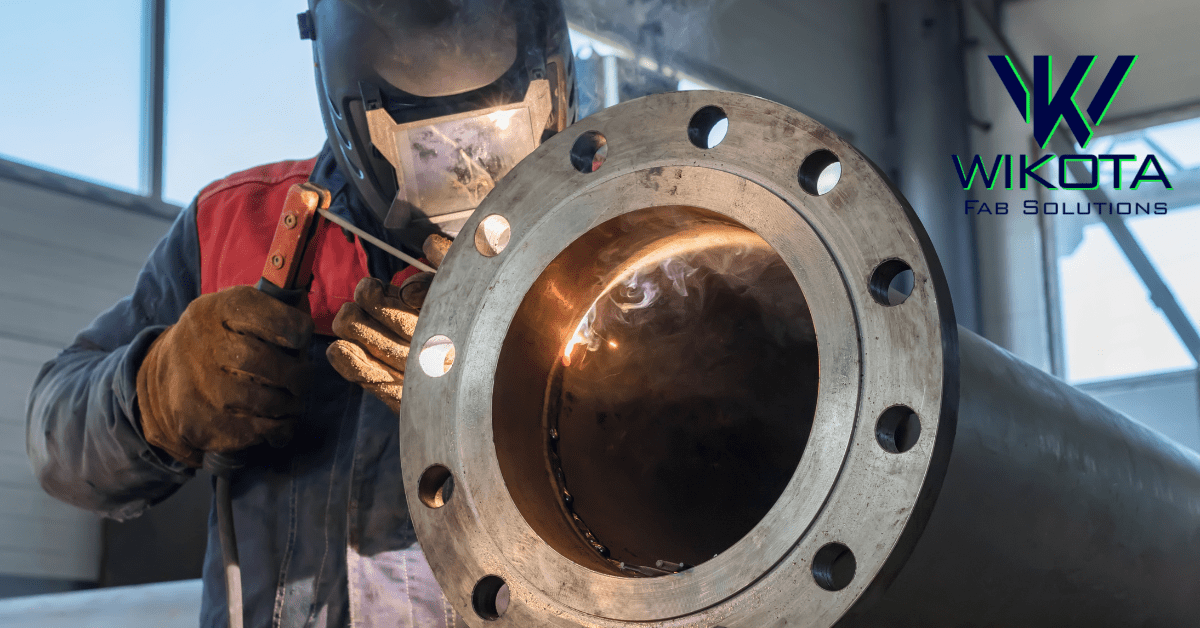In the world of fabrication and industrial manufacturing, maintaining high standards of safety, quality, and reliability is crucial. One of the most recognized standards in the welding industry is the ASME code welding certification, which serves as a benchmark for quality and compliance in welding practices. For fabricators, engineers, and inspectors, understanding ASME certification is essential to ensure that welded components meet rigorous standards, especially in industries where safety and durability are paramount. In this blog post, we’ll discuss what ASME code welding certification is, its importance, and the benefits it brings to fabrication and manufacturing.
What Is ASME Code Welding Certification?
ASME stands for the American Society of Mechanical Engineers, a globally respected organization that develops standards and codes for engineering practices. The ASME Boiler and Pressure Vessel Code (BPVC) is one of the most comprehensive sets of standards governing the design, construction, and testing of pressure vessels, boilers, and piping systems. It includes stringent guidelines for welding to ensure the safety, reliability, and longevity of these components.
ASME code welding certification certifies that a welder or welding procedure meets the strict standards established by the ASME BPVC. To achieve certification, welders must demonstrate their skills through various tests that assess their ability to create welds that withstand high pressures, temperatures, and other demanding conditions. This certification is widely recognized and required for projects in industries such as oil and gas, petrochemical, power generation, and construction.
Key Elements of ASME Code Welding Certification
ASME code welding certification consists of several components, each designed to ensure that welders have the skills, knowledge, and capability to perform high-quality welds. Here’s an overview of the key elements:
– Welder Qualification: ASME certifies individual welders based on their performance in specific welding processes, materials, and positions. Welders undergo rigorous testing to ensure they can produce high-quality welds under controlled conditions.
– Welding Procedure Specification (WPS): A WPS is a detailed document that outlines the welding procedures, materials, and techniques that must be followed to meet ASME standards. This specification serves as a blueprint for welders, ensuring that every weld adheres to the same high standard of quality.
– Procedure Qualification Record (PQR): The PQR is a record of the welding procedure test results, proving that the WPS produces a weld that meets ASME standards. The PQR includes data on materials, filler metals, joint configurations, and more, which provides a foundation for future welding projects.
– Weld Testing and Inspection: ASME-certified welds undergo testing and inspection to verify their quality. Common tests include radiographic testing, ultrasonic testing, and mechanical testing, all of which ensure the weld’s integrity, strength, and reliability.
Why ASME Code Welding Certification Is Important
ASME code welding certification is more than just a credential; it’s a vital aspect of quality assurance in industries where the failure of a welded component could lead to catastrophic consequences. Here are some reasons why ASME certification is so important:
- Ensuring Safety and Compliance
Welds in pressure vessels, boilers, and piping systems must withstand high pressures, temperatures, and sometimes corrosive environments. ASME certification ensures that these welds meet the strictest safety standards, reducing the risk of failure and protecting both people and property. Many regulatory agencies require ASME-certified welders for specific projects, making it essential for companies to comply with these standards to avoid legal or safety issues.
- Guaranteeing Quality and Durability
SME-certified welds are tested for strength, durability, and integrity, which guarantees the high quality of each weld. Certified welders follow standardized procedures that minimize the risk of defects like cracks, porosity, and misalignment. This quality assurance is especially critical for projects that require long-lasting, reliable welded components, such as those in power plants or chemical refineries.
- Boosting Credibility and Client Trust
For companies in the fabrication industry, ASME code welding certification is a mark of quality and professionalism. Clients and stakeholders recognize ASME certification as a guarantee of industry-standard practices, which enhances a company’s credibility and can lead to more business opportunities. When clients see that a company has ASME-certified welders, they feel confident that their project will be executed to the highest standards.
- Reducing Project Costs and Delays
Achieving ASME certification often involves rigorous planning, testing, and adherence to strict procedures, which may seem time-consuming at first. However, certified welds reduce the likelihood of defects, rework, and project delays in the long run. The upfront investment in certification pays off by minimizing costly repairs and downtime, allowing projects to stay on schedule and within budget.
- Meeting Industry-Specific Requirements
Many industries, including oil and gas, aerospace, power generation, and petrochemical, require ASME code welding certification for certain projects. In these sectors, ASME certification isn’t just a bonus—it’s a mandatory requirement. Without ASME-certified welders, companies may be disqualified from bidding on high-value projects, limiting their growth potential in these industries.
The Process of Obtaining ASME Code Welding Certification
Becoming ASME-certified requires careful preparation, skilled instruction, and a thorough understanding of ASME standards. Here’s an overview of the steps involved in obtaining ASME code welding certification:
- Select the ASME Code Section: ASME code welding certification varies depending on the type of project and industry. The most common sections include Section IX (Welding and Brazing Qualifications) for general welding and Section VIII (Pressure Vessels) for pressure vessel welding. Choose the section that aligns with your industry requirements.
- Develop a Welding Procedure Specification (WPS): A WPS is developed and submitted for approval. This document outlines the welding methods, materials, and conditions that the welder will follow to meet ASME standards.
- Procedure Qualification Record (PQR) Testing: The WPS must be validated by testing a sample weld according to ASME standards. The test results are documented in a PQR, which proves that the welding procedure produces a high-quality weld.
- Welder Testing and Qualification: Once the WPS and PQR are approved, welders undergo hands-on testing to demonstrate their ability to perform welds that meet ASME standards. The test includes welding under specific conditions outlined in the WPS and is observed by an ASME-certified inspector.
- Inspection and Certification: Welds are inspected using methods like radiographic or ultrasonic testing. If the weld meets all ASME standards, the welder receives ASME certification, which allows them to work on projects requiring ASME-compliant welding.
Benefits of ASME Code Welding Certification for Welders and Fabricators
For welders and fabrication shops, obtaining ASME code welding certification opens up new opportunities and provides numerous advantages:
– Career Advancement: Certified welders are in high demand, particularly in industries where ASME standards are required. ASME certification can lead to higher-paying jobs, increased job stability, and access to specialized projects.
– Skill Development: The certification process involves comprehensive training and testing, which hones a welder’s skills and ensures they can deliver the highest quality work. This skill development benefits both the welder and the fabrication shop that employs them.
– Competitive Advantage: For fabrication shops, having ASME-certified welders on staff can be a significant competitive advantage. It enables them to bid on a broader range of projects, including those in industries with strict quality requirements, and helps them stand out as reliable, qualified providers.
– Enhanced Reputation: ASME certification is widely recognized as a mark of excellence. Certified welders and fabrication shops build a reputation for quality and reliability, attracting clients who prioritize safety and compliance in their projects.
Conclusion
ASME code welding certification is essential for anyone involved in welding projects where quality, safety, and durability are top priorities. This certification ensures that welders possess the skills and knowledge needed to meet stringent industry standards, particularly in high-stakes fields like power generation, oil and gas, and construction. By adhering to ASME standards, certified welders and fabrication shops reduce risks, improve project quality, and enhance their reputation as trusted industry professionals.
For clients and contractors, partnering with ASME-certified welders offers peace of mind, knowing that their project is in capable hands. As industries continue to prioritize safety and reliability, ASME code welding certification remains a critical factor for success in fabrication and manufacturing. Whether you’re a welder looking to advance your career or a company seeking top-quality welding, ASME certification is a worthwhile investment that brings value, credibility, and competitive advantage to any fabrication project.
Ready to power your next project? Explore our Fabrication Services and let’s build something strong together.
Contact us today to learn how Wikota’s Fab Shop can help with your fabrication needs.
Serving North America – We ship completed projects anywhere in the US.




